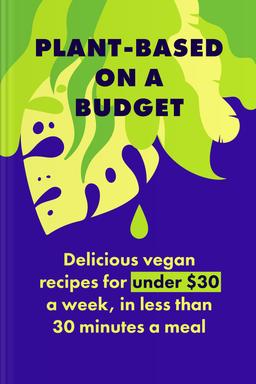Budgeting is a crucial aspect of financial management, providing individuals with the tools to take control of their money and achieve financial freedom. Our curated list of the top books about budgeting offers valuable insights, practical tips, and expert advice on how to manage your finances effectively.
Explore this list to find strategies for saving, investing, and crafting a budget that suits your needs. Boost your budgeting skills and positively impact your financial future with these carefully selected resources.
Budgeting books: Rethinking how you manage money
When you hear the word "budgeting," what's the first thing that comes to mind? Endless Excel spreadsheets, skipped coffee breaks, and a life of constant "no's"? The leading budgeting books flip that unappealing story on its head: budgeting isn't about restriction – it's about freedom to enjoy life without "spending" guilt.
Books like 'Get Good with Money' by Tiffany Aliche and 'I Will Teach You to Be Rich' by Ramit Sethi reframe the role money plays in your life. With the right mindset, you can turn budgeting into a source of calm, helping to chase away the stress of financial decisions.
Quality budgeting books would advise you with something more valuable than simply a "spend less" rule. Authors of 'Manage Your Money Like a F*cking Grownup,' 'Money Honey,' and 'Plant-Based on a Budget' make each lesson on how money really works relatable.
Pick titles that make learning about money easier, from understanding the nuts and bolts of interest rates to recognizing your own spending patterns.
If you thrive on structure, 'The No-Spend Challenge Guide' by Jen Smith, along with any of the 30-day money challenges, turns saving into an energizing reset. Meanwhile, classics such as 'The Millionaire Next Door' and 'Set for Life' deliver timeless lessons on building lasting wealth.
At its core, budgeting helps you close the distance between your real life and your dream life. Quite often, this gap grows larger due to unregulated emotional spending and unrealistic expectations.
Best budgeting books: Matching advice to your needs
The best budgeting books mix practical action lists with analysis of the psychological factors that drive certain money choices. Titles like 'Economics in One Lesson' and 'Know Yourself, Know Your Money' help you connect the dots between financial systems and personal habits.
'You Need a Budget' will assist with your debt-management efforts, while 'The Total Money Makeover' provides you with the "snowball method." If you're more interested in building wealth for the future, 'The Simple Path to Wealth' presents the idea of investing in index funds and growing money over time in a stress-free way.
For younger readers, the best book on money management would be 'Broke Millennial.' Here, you will find advice and explanations regarding the most common challenges, such as student loans and the career market. Then there's 'The Latte Factor,' a reminder that daily choices are the door code to financial freedom.
If you're looking for effortless ways to grow your wealth, give 'The Automatic Millionaire' a go and learn how to put your savings on autopilot. For anyone ready to start investing, 'Just Keep Buying' offers clear, research-driven strategies that enable you to grow your portfolio confidently.
For women, 'Clever Girl Finance' provides guidance toward independence, while entrepreneurs may gravitate toward 'Profit First' by Mike Michalowicz on how to manage business income.
Essentially, there's no perfect book on budgeting – just the best one for you at this particular moment of your life.
Hop into the list below and find your ultimate money-match.




